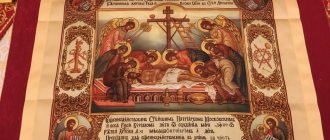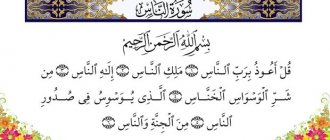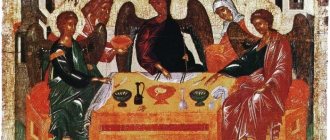- Hitting the road
- Dua when leaving home
- When boarding a vehicle
- When stopping for the night
- When returning home
- What is dua Ismi azam
When going on a long journey, a person always wants to hope that it will go well, that the person will return home safe and sound, and that the goal of his journey will be achieved. In such a matter, a Muslim places hope in the Almighty and turns to Him with a prayer that his journey will go well. Therefore, information about which duas should be read when leaving home, which duas to read on the road, and which ones upon returning, what the dua ismi azam is and why this dua will also be correct to read to a traveler will be useful for every Muslim believer.
Hitting the road
Muslims must follow the Sunnah of the Prophet Muhammad ﷺ, and travel is one of the Sunnahs of the Prophet ﷺ. When Muhammad ﷺ left home and went on the road, he always addressed the Almighty with the following dua: “ Allahumma inni a'uzu bikya min wa'sais-safari wa Kaabatil munqalabi wal-hauri ba'del kauri wada'watil-mazlum wa suil -manzari fil-ahli wal-mal ,” which translated means: “Oh, Allah! I seek refuge from difficulties on the road with You, from evil on the road and the curse of the oppressed, from troubles on the road, from damage to our families and property.”
If a believer has made the intention of going on a long trip, then he should say the following words: Subhanal-lyazi sakhhara lanya haza va ma kuna lyahu mukrinin wa inna ila Rabbina lamunkalibun. Allahumma inni nasaluka fi safarina hazal-birra wat-taqwa vaminal amali ma tarda. Allahumma havvin alayna safarina haza watwi anna bu'dahu. Allahumma antyas-sahibi fis-safari wal-califatu fil-ali. Allahumma inni auzu bikya min wa'sayssafari wa kaabatil-manzari wa suil-munkalyab fil-mali wal-ahli , which translated means an appeal to the Almighty with a request for good, fear of God and His pleasure on this journey, a request to make his way easier for the traveler, to protect on the way of the traveler himself and protect his family. This dua contains a request for refuge from difficulties on the road, for protection from troubles on the road and protection from damage to the traveler himself and his family.
Translation into Russian of the above dua: “Glorified is He who subjugated this to us, because we cannot do this! Verily we will return to our Lord. O Allah! Verily, we ask You (to help us adhere to) piety and fear of God in this journey of ours and to do such deeds with which You will be pleased. O Allah! Make this journey easier for us and shorten its distance for us. O Allah! You will be a companion on this journey and will become a successor in the family (here the hope is expressed that Allah will not leave with His help either the traveler himself or his family while the head of the family is absent). O Allah! Verily, I resort to Your protection from the difficulties of the path, from the despondency that (can be inspired by) what I see, and from everything bad (that can happen) to property and family.”
Who should read the prayer?
The great prophet Muhammad told the people that a dua before the road will be heard from 3 people: parents for their own child, the prayer of the traveler himself and the appeal of the one who is being oppressed.
Every devout Muslim has the right to recite sacred texts for help on the road.
It is not customary in Islam to pray for strangers; it is better to read dua for yourself and your children. The child is allowed to make a talisman against any harm on the way: write the text on a piece of paper, put it in his pocket. Infidels who deny the power of the Almighty cannot make appeals to make the road easier.
Dua when leaving home
In addition to the indicated duas on the road, a Muslim who goes out on his business, whether he travels outside his locality (on safar) or does not travel, must say the following words of remembrance of Allah when leaving home:
- “ Bi-smi Llyahi, tavakkyaltu 'ala Llyahi, wa la hawla wa la kuvvata illa bi-Llyahi! ”, which translated means: “I trust in the Almighty in the name of Allah, no one except Allah has power and strength”;
- “ Allahumma, in-ni a'uzu bi-kya an adilla au udalla, au azilla, au uzalla, au azlim, au uzlyama, au ajhala, au yujhala 'alaiya! ”, which translated means: “Oh, Allah, I truly resort to You, so as not to go astray and not to be led astray, so that I myself do not make a mistake and so that no one makes me make a mistake, from my own unfair actions and from not being treated unfairly, from my own ignorance and from not being kept in ignorance.”
Also, a Muslim, when leaving the house, should say “ Astaudi'u-kumu-Llaha allazi la tady'u vadai'u-hu ” - thereby he offers prayers to the Creator for those who remain at home, saying: “I entrust you to Allah, whose keeping what is given to Him is not lost.”
Who is considered a traveler
According to Islamic law, a person is considered a traveler (musafir) if he is traveling 90 kilometers or more from his city, town or village and planning a stay of less than fifteen days in any place abroad. The journey begins as soon as a person leaves his city and ends when he returns.
Since travel usually involves coercion, the law provides certain benefits to travelers. We shorten the obligatory prayers of four rak'ahs (afternoon, afternoon, late evening) and perform them as prayers of two rak'ahs. The obligatory prayers of three and two rak'ahs remain unchanged. If we do not have time, we may decide not to perform the sunnah in prayer. If we choose to perform the Sunnah parts of the prayer, there will be no shortening.
When boarding a vehicle
The list of desirable duas for the road also includes prayers that should be said when you get into any vehicle: a car or an airplane, riding a horse or a ship. You mentally thank Allah for the blessings He has given us - for the car that does not let us get tired, carries our cargo and quickly takes us to our desired goal - and you say: Bismillahi, wal-hamdu lillahi, subhana-llazi sakhhara lyana haza , va ma kunna lyahu mukarinina, va inna ila rabbin lyamunkalibun.
Translation into Russian: “In the name of Allah! (sitting down) Praise be to Allah! (sitting) Glory is He who subjugated this to us, because we cannot do this! Verily, we will return to our Lord!”
The following words can be added to the above dua:
Al-hamdu lillah-Al-hamdu lillah-Al-hamdu lillah. Allahu akbar - Allahu akbar - Allahu akbar. Subhanaka, Allahumma inni zalamtu nafsi fagfir li fa innahu la yagfiru az-zunuba illya anta .
When a Muslim gets into a vehicle, it is advisable for him to read the dua (which is contained in the Koran): “ Allahumma anzilni munzalyan mubarakan wa anta khairul munzilin .” This dua also contains a request to the Lord to provide the person praying with the best accommodation for the night.
Which sapar prayers are shortened?
We have already figured out how to perform namaz on the road, all that remains is to find out which prayers can be shortened.
Prayers, which usually (outside of travel) are 4 rak'ahs, are reduced to two while on the road. This means that prayer on the road is carried out exactly according to these rules. From the following verses it is clear that the reduction of 2 rak'ahs of obligatory prayer to 1 rak'ah only applies to the case of fear: “When you go to wander in the earth, you will not be blamed if you shorten the prayer when you fear that those who hide their faith, may attack you. If you are among the believers and stand up (at war) to offer a prayer for them, allow a group of them to pray with you, holding hands. When they prostrate, allow them to move around you and let the other person who has not prayed pray with you, remaining alert and keeping your hands out so your enemies can see you. But it will not be your fault if you fold your arms in case of illness or bad weather.
We recommend reading → Scheme for performing namaz: what daily prayer consists of
To summarize: all prayers except Maghrib are obligatory as 2 rak'ahs when we travel. This is not a reduction. Prayers can only be shortened when we fear the enemy, and this is established by performing these obligatory 2-rakat prayers as 1-rakat.
Review of texts and their meanings
The description of the life of the Prophet Muhammad mentions Muslim prayer on the road. The dua sounds in transcription:
To understand the meaning of the sacred Islamic text, you can use the translation into Russian: “O Almighty, I ask for protection from difficulties, dashing, bad things on the road.”
A short dua before going to work in a car, bus or before traveling by train, flying by plane:
All rights reserved. ْنْ وَ اِنَّا اِلَى رَبِّنَا لَمُنْقَلِبُوْنْ
The transcription of the sacred text helps to correctly pronounce the request for protection on the road: “Subhanallazi-sa-hara-lana-haza-vama-kuna-lahu-mukrinin-va-ina-ilya-rabina-la-munka-libun.”
To understand the meaning of the dua, they use the text: “The one who subjugates will be glorified, because we are not able to, truly we will go to the Almighty!”
If the journey is long, a more complex prayer for a good road will do, including the words of the Prophet Nuh:
Translated, the sacred text of the traveler’s dua for an easy road reads: “Pure is He Who has conquered and does not obey us, truly we are going to the Almighty. God, I call You, give me help, help me maintain piety and fear of God, and do things that earn Your approval. Great One, make the journey easy, shorten the distance. Allah, You are the companion and successor of my family (it is implied that the Creator protects the remaining relatives at home). God, I truly ask for protection from hardships, from sadness, if I have to see something sad, from everything bad that can happen.”
Already on the road, a person can say the following dua:
The approximate meaning of the words of the dua in Russian: “God, I truly pray to You to protect me from collapse and death, from floods and flames, to preserve me so that Satan does not approach before death. Help me not to die on the righteous road, retreating. I ask you to protect me so that I don’t die from the sting.”
When going on a long journey with an overnight stay away from home, say the following dua:
“Alahuma-azilni-munzalyan-mubarakan-va-anta hi rul mun-zilin.”
The meaning of the words of the prayer: “O God! Give me a place to stay for the night, because you are the best of givers.” When you stop on the road, repeat the appeal to Allah:
The meaning of the dua translated into Russian: “Seeking refuge from the bad influence of every creation in His words!”
After crossing the road, you need to say: “Ayubina-taibuna-a-abiduna-li-rabina-hamidun.” The line from the Koran means that the traveler asks for forgiveness, worships and praises Allah. The man returned and thanks the Almighty for his help.
Features of making a talisman with your own hands
A self-made amulet is considered stronger than a purchased one. It concentrates all the wishes and thoughts of a person, his energy. Manufacturing procedure and rules:
- determine the purpose of the amulet;
- all inscriptions are made in Arabic, lines are taken from the Koran;
- you cannot rush and fuss, or be distracted by extraneous problems;
- the main thing is faith in Allah and recognition of oneself as a true Muslim.
If the product is going to be given as a gift, then during weaving they think about positive things and mentally wish well to the future owner.
Images of any amulets and quotes from the sacred scriptures are allowed to be embroidered. Symbols are used to decorate clothes, napkins, towels, tablecloths, children's accessories, and hang them as panels on the wall. The embroidery is shaped at your discretion and complemented with beads and stones.
Embroidered Muslim amulet
History of Muslim, Tatar amulets and talismans
The history of the development of Muslim amulets dates back to ancient times. Eastern peoples have always believed in the existence of otherworldly forces, genies and other evil entities. The desire to protect oneself led to the emergence of various attributes that were endowed with a certain power.
At the same time, the Koran clearly prohibits people from practicing magic, calling it a sinful act and deception of good citizens. But the tradition of making amulets not only did not disappear, but, on the contrary, became stronger among ordinary people. They are carried with them, installed in homes, and given as gifts for holidays. It is believed that the use of amulets is not witchcraft, since their use does not contradict religion and does not have an exclusively positive meaning.
In Islamic culture, they believe that the magic of words is the most powerful and that rituals and spells in the making of amulets are based on it. This secret information is passed down orally from generation to generation.









